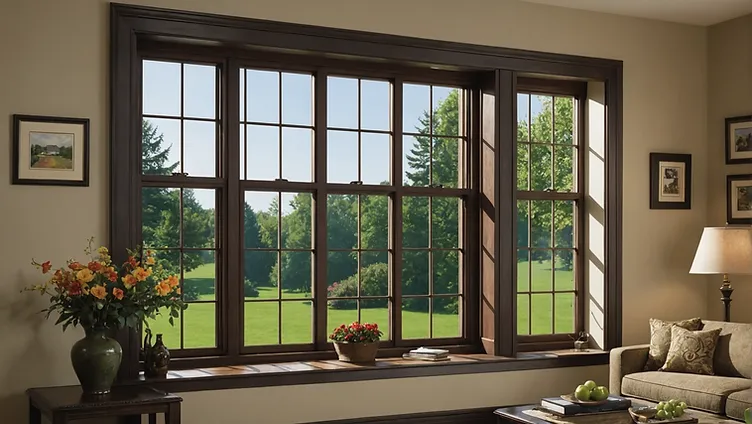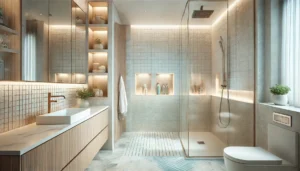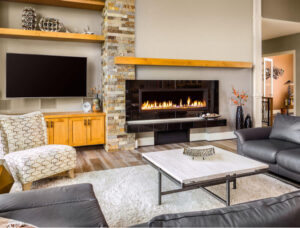Home Window Replacement: A Comprehensive Guide to Improving Your Home’s Efficiency and Aesthetics?

Home window replacement is one of the most impactful home improvement projects you can undertake. Whether you’re looking to boost your home’s curb appeal, increase energy efficiency, or replace outdated windows, this investment can provide significant long-term benefits. This guide will cover everything you need about home window replacement, including the benefits, types of windows available, the replacement process, and tips for choosing the right contractor.
Why Consider Home Window Replacement?
Replacing your windows can seem daunting, but it is often essential in maintaining your home’s comfort, security, and value. Here are some key reasons why homeowners choose to invest in window replacement:
- Enhanced Energy Efficiency
Old, inefficient windows can lead to drafts, heat loss, and higher energy bills. Modern windows offer much better insulation, especially those with low-emissivity (Low-E) coatings and double glazing. By replacing your windows, you can reduce heat transfer, keeping your home cooler in the summer and warmer in the winter. This can lead to substantial savings on your energy bills, especially in regions with extreme climates.
- Improved Aesthetic Appeal
Windows are one of the first things people notice when they look at a home. Outdated or damaged windows can make your house appear rundown. Home window replacement provides an opportunity to update the style of your home, whether you’re going for a traditional, modern, or contemporary look. New windows can dramatically improve your property’s overall curb appeal and value.
- Increased Home Value
A home with energy-efficient, attractive windows will likely appraise higher than one with old or deteriorating windows. Many potential buyers consider window quality an important factor when evaluating a property. As such, home window replacement is one of the most cost-effective ways to boost the marketability of your home if you plan to sell in the future.
- Noise Reduction
Replacing your windows can significantly reduce noise in a noisy neighborhood or near a busy road. Double-pane windows with soundproofing features help create a quieter, more peaceful indoor environment. This can be a particularly valuable upgrade for homes in urban areas or areas with high traffic.
- Increased Home Security
Modern windows are often equipped with advanced locking mechanisms and shatter-resistant glass, improving the security of your home. This is particularly important if your current windows need to be updated or repaired, as they may be easier to break into. With newer, sturdier windows, you can have greater peace of mind knowing your home is more secure.
Types of Home Windows Available for Replacement
Choosing the right window type for your needs is essential when considering home window replacement. Here are some of the most common types of replacement windows available:
- Double-Hung Windows
Double-hung windows are a classic choice for many homes. These windows have two sashes that move vertically. They are popular because they are easy to clean and maintain. Double-hung windows also offer excellent ventilation when both sashes are open, allowing air to flow in from the bottom while hot air escapes from the top.
- Casement Windows
Casement windows are hinged on one side and open outward like a door. These windows are great for improving ventilation because they can open fully and catch the breeze. They are often more energy-efficient than double-hung windows, as they seal tightly when closed.
- Sliding Windows
Sliding windows consist of one or more sashes that slide horizontally. They are simple to operate and ideal for larger openings or areas where you want unobstructed views. Sliding windows are also energy-efficient, especially if they are made with high-quality glazing and weatherstripping.
- Bay and Bow Windows
Bay and bow windows are large, protruding windows that extend outward from the wall. They are an excellent choice for enhancing your home’s interior and exterior. These windows create more space and allow for beautiful panoramic views. Bay windows typically have three panes, while bow windows feature a curved design with four or more panes.
- Picture Windows
Picture windows are large, fixed windows that provide a clear, unobstructed view of the outside. They don’t open or close, making them ideal for rooms without ventilation. These windows are great for showcasing scenic views or bringing in natural light.
- Awning Windows
Awning windows are hinged at the top and open outward, forming an awning-like structure. These windows are often used in basements or areas where it’s important to keep rainwater out while allowing ventilation. They are easy to operate and can be left open during light rain without letting water enter the home.
The Home Window Replacement Process
Home window replacement typically involves several stages, each requiring careful planning and attention to detail. Here’s a step-by-step overview of the typical process:
- Initial Consultation
The process usually begins with an initial consultation with a window replacement professional. During this visit, the contractor will assess the condition of your current windows, discuss your needs and preferences, and provide an estimate. It’s important to ask questions during this phase to ensure you understand your options.
- Measuring and Ordering the Windows
Once you’ve decided on the type and style of windows, the contractor will take precise measurements of each window opening. Custom windows may need to be ordered if the standard sizes don’t fit your openings. This stage can take a few weeks, depending on the window manufacturer.
- Preparing for Installation
Before the installation begins, the contractor will prepare the work area. This includes removing any furniture or obstacles around the windows to ensure the installation can be completed without damage. Protective coverings may be placed over the floors and furniture to keep the area clean.
- Removing the Old Windows
During the installation day, the old windows will be carefully removed. This process involves removing the window frames and any existing trim or caulk. The contractor will dispose of the old windows or prepare them for recycling if necessary.
- Installing the New Windows
If necessary, the new windows will be installed into the existing frame or a new one. To prevent drafts and water leakage, the contractor will ensure the windows are level, square, and properly sealed. Special attention is given to weatherstripping and insulation to ensure maximum energy efficiency.
- Finishing Touches and Clean-Up
After installing the new windows, the contractor will add any necessary finishing touches, such as trim or caulking, to give the windows a polished, seamless appearance. The area will be cleaned once the installation is complete, and any leftover debris or materials will be removed.
- Final Inspection and Warranty
Finally, the contractor will thoroughly inspect the installation, ensuring everything is up to standard. Many contractors offer warranties on the materials and artistry, providing peace of mind if any issues arise.
Tips for Choosing a Window Replacement Contractor
Choosing the right contractor is crucial to the success of your home window replacement project. Here are some tips to help you find a reliable, trustworthy professional:
- Check Credentials: Ensure the contractor is licensed, insured, and has a good reputation. Look for online reviews, testimonials, and examples of past work.
- Get Multiple Quotes: It’s always a good idea to get quotes from several contractors to compare prices and services.
- Ask About Warranty Options: A reputable contractor should offer a warranty on the windows and the installation.
- Discuss the Timeline: Ensure the contractor provides a clear timeline for the project, including start and completion dates.
- Inquire About the Materials Used: The quality of the materials used can greatly affect the performance and longevity of your windows. Ask about energy-efficient features and the types of glass used.
Conclusion
Home window replacement is an investment that pays off in numerous ways, from enhanced energy efficiency and improved aesthetics to increased home value and security. With so many window options available, it’s important to carefully consider your needs, preferences, and budget before deciding. Choosing the right windows and a qualified contractor can transform your home’s appearance, comfort, and performance. Whether you’re looking to upgrade outdated windows or address specific issues like drafts and noise, home window replacement is a smart choice that can benefit your home for years to come.



